The recent re-issuing of two old Criterion titles in upgraded DVD and Blu-ray formats has thrust the work of Sam Fuller back into the spotlight. Shock Corridor and The Naked Kiss hearken back to the earliest days of Criterion’s entry into the DVD marketplace back in 1998, but now they’re as current as can be with the new editions coming out earlier this month.
So for this week’s installment of A Journey Through the Eclipse Series, let’s take a look at where Fuller’s directorial career began, with I Shot Jesse James, from Eclipse Series 5: The First Films of Samuel Fuller.
Fuller first established himself, and continued throughout his career, as a director of genre pictures, with his 1949 debut planting him squarely within the then-thriving fad of Western movies. He got his start in the industry as a screenwriter, but after expressing some dissatisfaction with how his material was handled, he made it a condition that he’d be allowed to direct his own scripts (at no extra cost) before allowing them to be filmed.
We can be thankful for both his stubbornness and for the fact that he found some willing collaborators, because it’s hard to imagine anyone else doing justice to the lurid pulpy tales that he sought to put on screen.
At the time that I Shot Jesse James was released, the mythology of that renowned outlaw was a lot more familiar to the average filmgoer than it is today, so let me recap just a bit here. Jesse James functions (in cultural memory, though not so much in historic fact) as a kind of Americanized Robin Hood, a notorious thief who stole from the rich and gave to the poor, whose criminal inclinations were driven by only the noblest of intentions.
Along with his brother Frank, they led the infamous James Gang, pulling off a string of bank and train robberies across the American Midwest in the post-Civil War years that captivated the popular imagination at the time, in much the same way that figures like John Dillinger and Al Capone generated fascination in the first half of the 20th century.
In life, Jesse James conducted himself boldly and brashly enough to draw a lot of attention to himself, but his legend was cemented by the circumstances of his death, when he was shot in the back by a trusted accomplice named Robert Ford, who subsequently turned himself in and claimed the bounty that the governor of Missouri had placed on James’ head. Ford’s name went on to become a byword for craven traitors who would eagerly bite the hand that feeds them, even if their fortunes were illicitly obtained.
Ford himself met an ignominious end when an admirer of Jesse James accosted him one night in a bar and blew his head off. Though Fuller follows Ford to the bitter end of his life, the main emphasis isn’t about exacting moral justice on a latter-day Judas Iscariot , but on trying to figure out what goes on in the mind of a man who would murderously betray his leader and friend. What would motivate such a killing? And how could a man live with himself after pulling off such a miserable deed?
Fuller posits, without much historic backing, that Ford was motivated not by simple greed but by the more romantically acceptable (and psychologically fascinating) love of a woman. In I Shot Jesse James, Ford’s alibi for killing his boss and protector turns out to be his desire to earn the right and material means to marry his sweetheart, the beautiful stage actress Cynthy Waters.
Lured by the governor’s promise of total amnesty and a lucrative financial reward, Bob Ford wrestles (briefly) with the appalling implications of his act, but in true desperado fashion, he thrusts himself into it, driven by lust and heedless of any other consideration.
But before you draw the conclusion that Fuller was a precursor to some kind of introverted meta-referential ‘post-western’ hybrid, let me assure you that I Shot Jesse James offers plentiful thrills that a classic American Western ought to deliver.
We have all the epic landscape exteriors, barroom brawls, singing cowboys, Stephen Foster music hall numbers (in this instance, it’s “Beautiful Dreamer”) and six-gun packin’ showdowns on dusty frontier streets that anyone could ask for. Fuller was no dummy ‘“ he knew what the crowds paid for and he wasted no time meeting their expectations.
[youtube http://www.youtube.com/watch?v=2HTepB-6xFs&fs=1&hl=en_US]
But he threw in just a little bit more, something beyond the ordinary, and it’s that extra stuff that helped his films stand out from the run-of-the-mill product so prevalent at the time, and that makes his movies worthy of our attention more than six decades later.
For example, there’s the ambiguous, arguably homoerotic relationship between Bob and Jesse, where we see unusually tender acts of care exchanged between the two men, first when Bob is shot in a botched robbery to open the movie (including Jesse’s obliging forgiveness after Bob drops the money bag as they make their escape) and later, when Bob has his first golden opportunity to rub out Jesse, but opts to simply scrub his back in the bathtub instead.
Whatever we make of the bond between the two men, the celebrated bandit is dispatched within the first 25 minutes of I Shot Jesse James, leaving the next hour to observe the various torments suffered by his assassin. The legal tribulations are swiftly summarized in the narrative by a series of front-page headlines that chronicle Bob Ford’s arrest and eventual pardon. That was the easy part!
The real grind consists of living with the shame and ignominy that rightfully accrues to the spineless cur who would gun down his friend for the sake of a tawdry and temporal reward.
Of course it turns out that Cynthy isn’t exactly on Bob’s wavelength when it comes to assessing the merits of removing Jesse James from the ranks of the living. While Bob figures that the promise of a wedding ring and a clean slate in the eyes of the law will give him carte blanche to ask for her hand in marriage, Cynthy has a host of other considerations to weigh, starting with whether or not she really wants to go forward in life associated with such a notorious scoundrel for a husband.
It’s at this point that I have to consider Fuller’s relationship with a mass of veterans like himself from World War II who had made killing their business and now faced the task of returning to the States and convincing the women they fancied that they were safe, dependable and well past the worst of their homicidal impulses.
Themes of jealousy, confusion, revenge and despair occupy the latter two-thirds of I Shot Jesse James, taking this particular excursion into America’s past well beyond the familiar territory of white hats vs. black hats that typically supplied Western films of this era with their motivational force. Bob’s desire for Cynthy is complicated by her own ambivalence over whether or not she should yield to his ardor, honor the amorous pursuits of his rivals or simply fulfill her own ambitions as an independent woman.
Fuller even manages to toss in some humorous critiques of show business and the artifice of theater that he himself exploited over the course of his career, as he depicts Bob Ford’s on-stage re-enactment of the moment when he shot Jesse James, an exploitative gesture that Ford really did indulge in for awhile.
If you’re the impatient type, I might as well tell ya that you can take in the gist of I Shot Jesse James in this 9 minute condensed version of the movie. It gets the point across to you efficiently enough, but I hope it functions more as a teaser to lure you in than as an excuse for you to pass up on watching the whole thing for yerself.
[youtube http://www.youtube.com/watch?v=otiT7J19F18&fs=1&hl=en_US]
To adequately grasp the extent to which the myth of Jesse James has sunk into the American consciousness, I invite you to give this clip a listen, in which noted rock band U2 offers their rendition of the folk song ‘Jesus Christ,’ (first made popular by the even greater Woody Guthrie) set to the same exact music as the ballad of Jesse James that we heard in the above clip.
[youtube http://www.youtube.com/watch?v=NdgRPjZFH8E&fs=1&hl=en_US]
So is all the hype surrounding Jesse James justified, when it comes right down to it? In my opinion, no. James was just another racist ex-Confederate scumbag who totally deserved what he had coming to him, and Robert Ford was probably no more worthy of our admiration either.
But like all the masterful myth-makers who preceded and came after him, Sam Fuller did a great job working with the material given to him. Detached from the venal brutalities from which the story emerged, I Shot Jesse James is a fine example of American folklore in cinematic form, and a revealing pointer toward the monumental and throat-grabbing filmography of Samuel Fuller that followed.


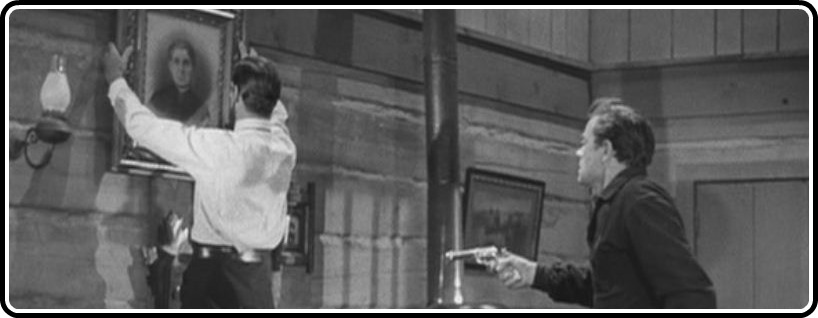

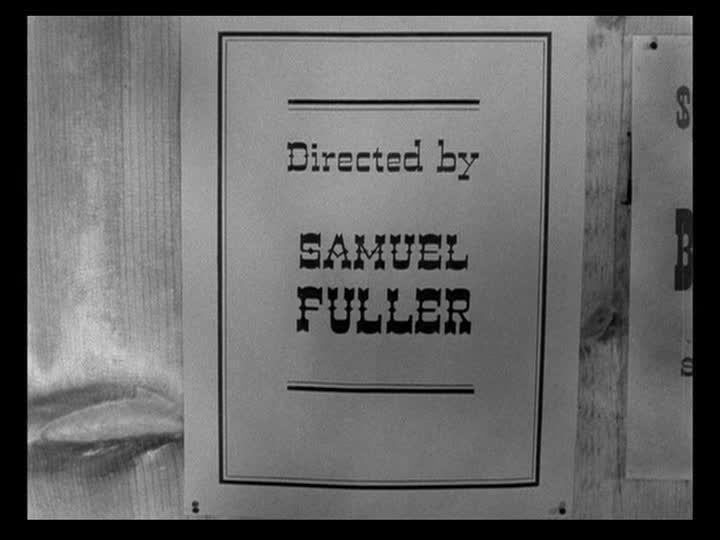
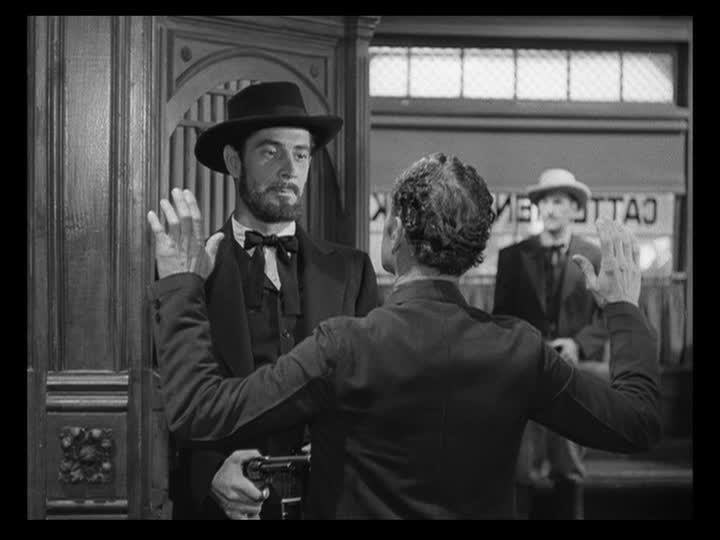

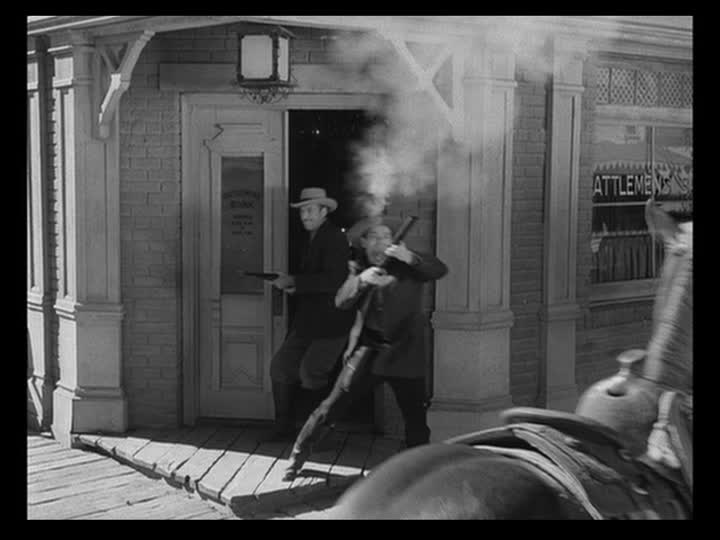

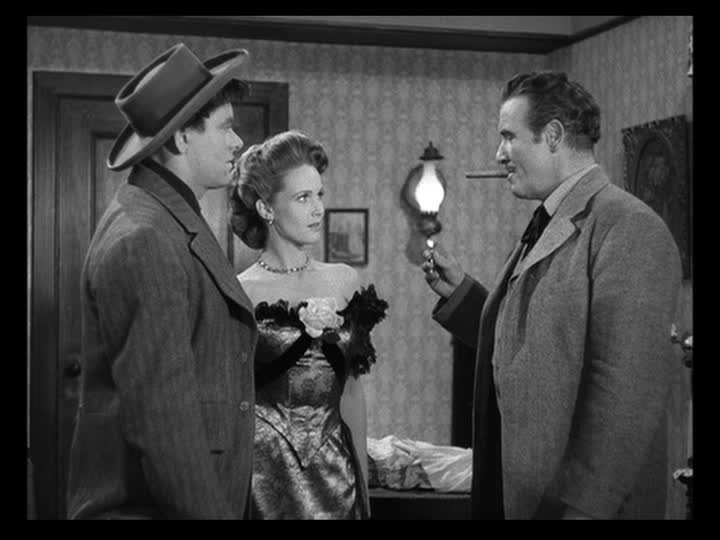
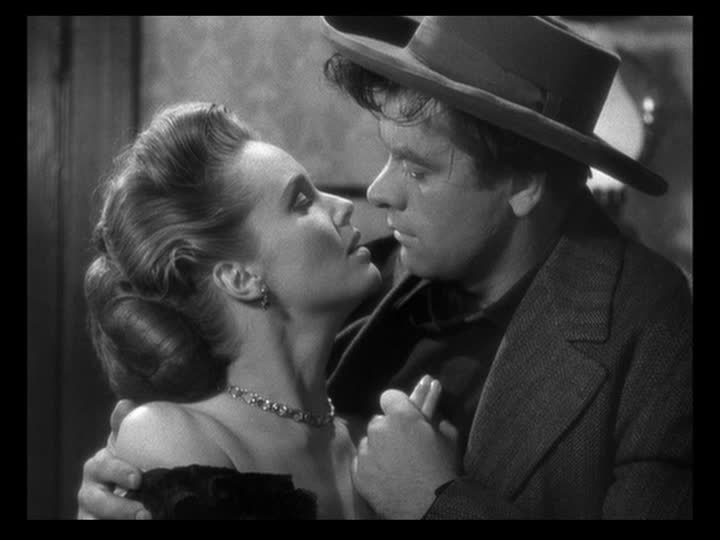
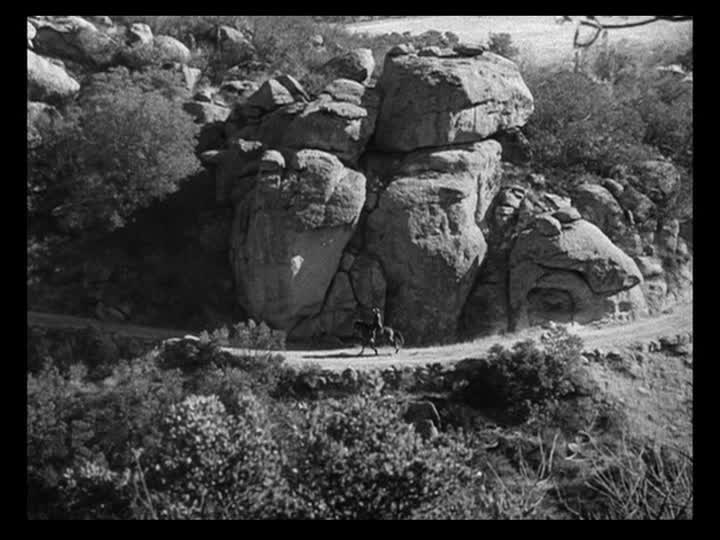
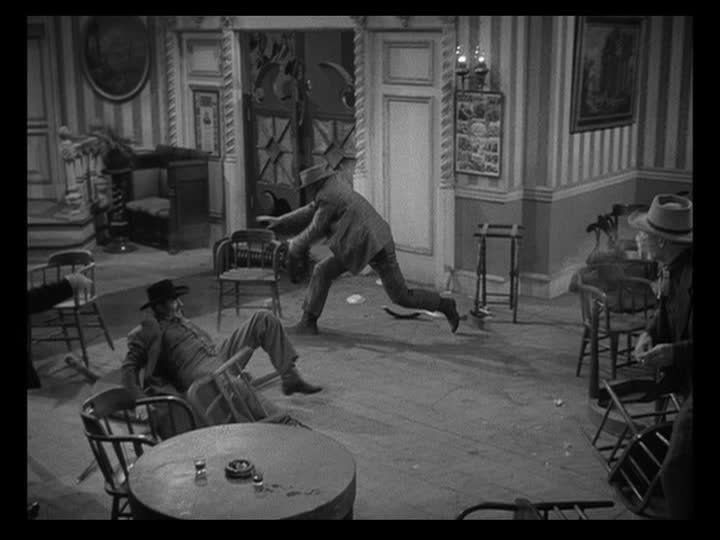
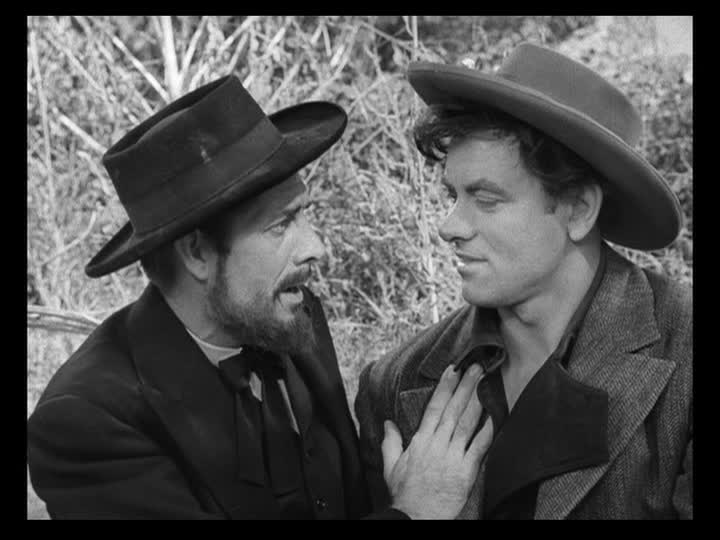
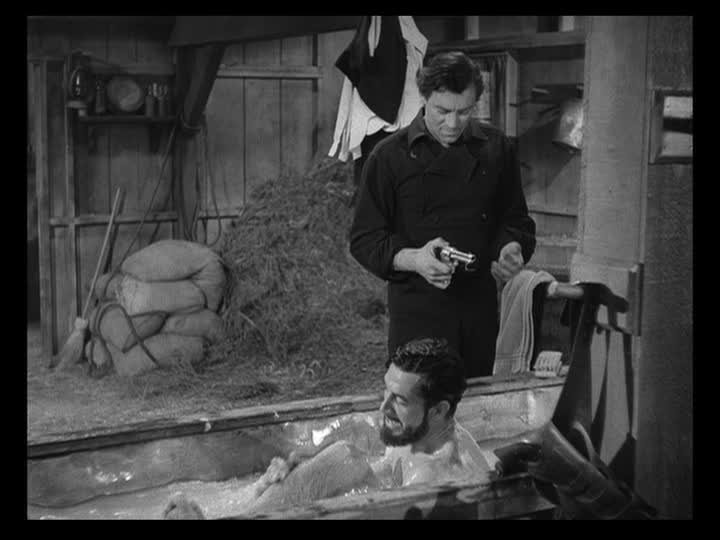
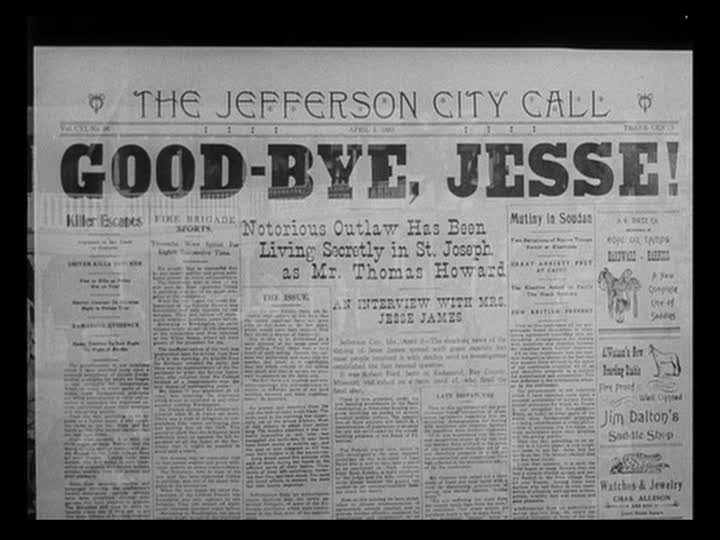
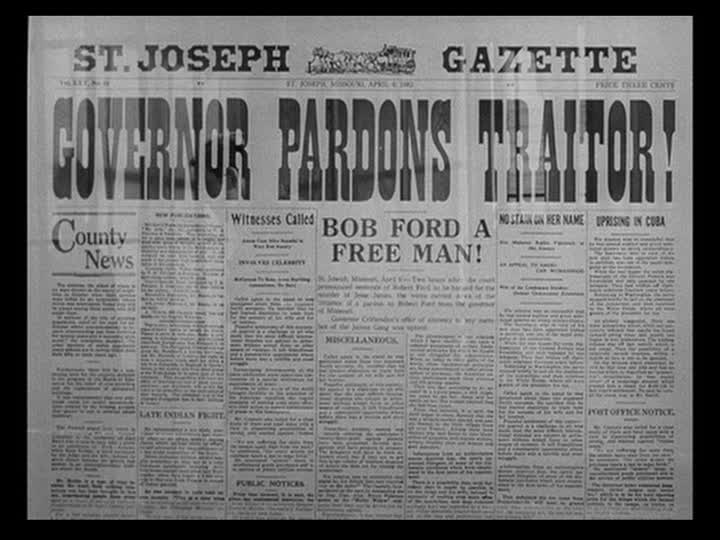
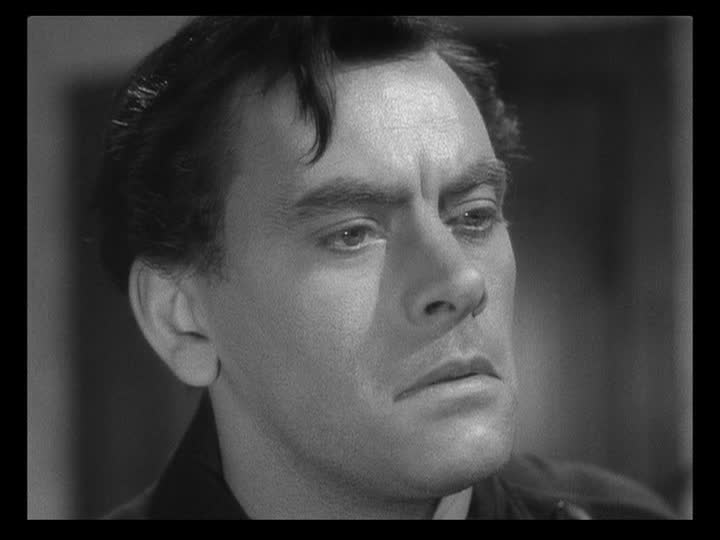

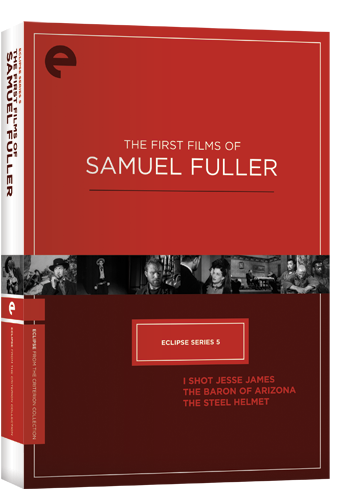


![Bergman Island (The Criterion Collection) [Blu-ray]](https://criterioncast.com/wp-content/uploads/2022/11/bergman-island-the-criterion-collection-blu-ray-400x496.jpg)
![This Is Not a Burial, It’s a Resurrection (The Criterion Collection) [Blu-ray]](https://criterioncast.com/wp-content/uploads/2022/11/this-is-not-a-burial-its-a-resurrection-the-criterion-collection-blu-ray-400x496.jpg)
![Lars von Trier's Europe Trilogy (The Criterion Collection) [The Element of Crime/Epidemic/Europa] [Blu-ray]](https://criterioncast.com/wp-content/uploads/2022/11/lars-von-triers-europe-trilogy-the-criterion-collection-the-element-of-400x496.jpg)
![Imitation of Life (The Criterion Collection) [Blu-ray]](https://criterioncast.com/wp-content/uploads/2022/11/imitation-of-life-the-criterion-collection-blu-ray-400x496.jpg)
![The Adventures of Baron Munchausen (The Criterion Collection) [4K UHD]](https://criterioncast.com/wp-content/uploads/2022/11/the-adventures-of-baron-munchausen-the-criterion-collection-4k-uhd-400x496.jpg)
![Cooley High [Criterion Collection] [Blu-ray] [1975]](https://criterioncast.com/wp-content/uploads/2022/11/cooley-high-criterion-collection-blu-ray-1975-400x496.jpg)
This is one of my favorite Fuller films and one of my favorite debuts. Every shot is framed so perfectly, nothing fancy but direct and to the point.
This is one of my favorite Fuller films and one of my favorite debuts. Every shot is framed so perfectly, nothing fancy but direct and to the point.
Yeah, that’s a good point. I just watched that 9 minute clip and you’re right, the shots are all nicely composed and convey their purpose without drawing attention to themselves as self-consciously clever or elaborate. I’m not sure where Fuller learned how to direct, but he made it look easy!